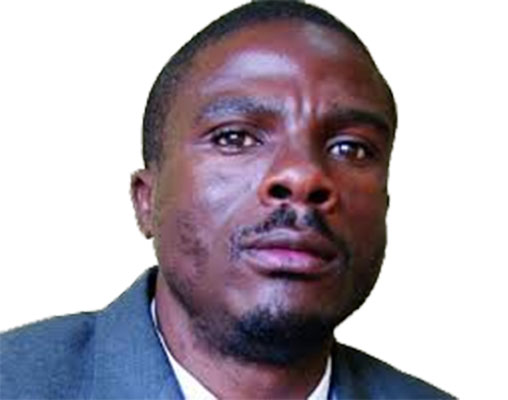
travelling & touring:with Burzil Dube
Late last year, water levels in the Victoria Falls were dwindling at alarming rates with some sections of society coming up with all sorts of strange theories on whether the situation would ever return to normalcy.
Some “soothsayers” even went to an extent of predicting that the Zambezi River, which flows downstream through the falls, would not take less than three years to be at full capacity, thus in the process threatening the country’s tourism industry.
Much to these “clairvoyants” dismay, inflows into the Zambezi River gathered unprecedented momentum during this year’s first two months with the volume of water being the highest in 13 years.
The increase in the water volume was boosted by flooding of the renowned Barotseland Flood Plains in Zambia’s Western province where the mighty Zambezi River meanders through the plains. This place is also home to the Lozi tribe, whose origins can be traced from Shangano and Bumbusi (now ruins) in the Sinamatella Concession area in Hwange district. The cultural norms and values of the Lozi are almost similar to those of the Nambya tribe who are mainly concentrated in and around Hwange district.
Besides playing a pivotal role in the flooding of Africa’s fourth largest river, what else makes Barotseland so peculiar?
It is among Africa’s great wetlands and the Lozi people, whose culture is mainly stimulated by the flood cycle of Zambezi River.
According to some research scholars, the Lozi (Barotse) people in Western province are currently among the world’s few ethnic groups with a distinctive floodwater ceremony called the Kuomboka.
- Chamisa under fire over US$120K donation
- Mavhunga puts DeMbare into Chibuku quarterfinals
- Pension funds bet on Cabora Bassa oilfields
- Councils defy govt fire tender directive
Keep Reading
Just like the biblical Noah did with his people, among the Lozi, an ark-like vessel, locally called Nalikwanda, is constructed to permit deluging of their country by floodwaters. They deliberately allow water to flood part or the whole of their land to create a valuable, scenic and ecologically productive area to be enjoyed by both human beings and wildlife.
Talk of being creative as well as innovativeness by this particular tribe! This ceremony which is a major cultural event usually takes place either in February or March of every year.
Had it not been for a series of coronavirus (Covid-19)-deterrent lockdown measures enforced by several nations including those surrounding Zimbabwe, this symbiotic relationship between the Nambya and their Lozi counterparts could have gone to another level courtesy of a Hwange-based theatre group.
Yours truly after having accepted an invitation from Pezhuba Pachena Cultural Ensemble to accompany them to the much-touted epic “cultural war” with Barotseland-domiciled artistes, could also have used this golden opportunity to sample some of the tourist facilities that are found in Zambia’s Western province even though home is always among the best when it comes to such amenities.
Pezhuba Pachena are currently the reigning Matabeleland North Chibuku Neshamwari Traditional Dance champions whose Nambya insumbule dance is a marvel to watch. Their membership is composed of Nambya, Tonga and Ndebele dancers who share a common belief that is restoration of African pride and human dignity through artistic performance.
In true Nambya warrior fashion, the group, which is composed of seven males and three females, is gradually proving to be a force to reckon with in the tourism entertainment industry. They are taking no prisoners judging by the number of enquiries they regularly receive from Victoria Falls-based hotels and lodges.
Yours truly had the opportunity of being part of guests watching them showcasing their Nambya and Tonga cultural antics deep inside the Zambezi National Park at some upmarket lodge near the Kazungula border post.
In a brief chat with Lucky Munzabwa, the group’s founder and artistic director, he said they had set their sights on what he called “invasion” of a few districts in Barotseland, the home of their ancestors who earlier migrated from Shangano in Hwange.
The districts included Sioma, Sesheke and Mwandi where their Lozi counterparts had invited them to come and serenade audiences with their cultural dancing skills during the Kuomboka ceremony.
However, the anticipated Zambian escapade is now up in smoke following the Covid-19 outbreak that has affected most parts of the world.
Sponsorship for this escapade is now in limbo as the group’s potential sponsor’s business has also been badly affected by the Covid-19 ripple effects.
Pezhuba Pachena’s name is derived from Hwange’s fiery hot temperature coupled with the group’s sizzling performance, which has in turn left various audiences clamouring for encores.
It is to their nimbleness on stage that has left me behaving as if I am their publicist. However, if offered such an opportunity, yours truly would accept it with humility as part of my corporate social responsibility endeavour towards this Nambya dance group.
I personally foresee them soaring to greater heights if sponsors are to come on board and my instinct tells me that funding is on the horizon.
According to Munzabwa, they have in the past turned down invitations to perform for free or little fees. Those same institutions do not offer any dime whenever Pezhuba Pachena does approach them in search of the much-needed funding to procure traditional attire and other related nitty-gritties.
As it is said in the Nambya dialect: “Lulokombolelwa luboko lunopa kuna luboko lunotambula. [Blessed is the hand that gives than the one that takes.]”
After all is said and done, yours truly wishes this Nambya cultural outfit a successful expedition (depending on sponsorship) when they embark to neighbouring Zambia as they seek to consolidate cultural norms with their fellow counterparts. l Comments always welcome on: [email protected]











